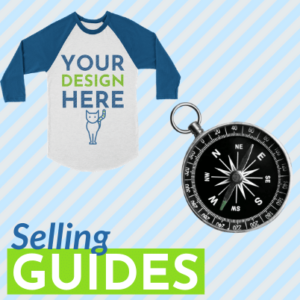What You Need to Know About SEO for E-Commerce Websites
Search engine optimization (SEO) is extremely important for ecommerce websites. SEO ensures that you get enough organic traffic, constantly improve brand awareness, and other benefits. Here’s what you need to know about SEO for ecommerce websites.
Why SEO Is So Important
Search engine optimization, also known as SEO, is essential for any kind of online activity that involves a website, a blog, or a store. In fact, you could even say that it is critical for social media too, but it’s a little more complex. If you know how to use SEO, you will be able to achieve most of your digital marketing goals. SEO helps you get more organic traffic, which is usually a larger piece of the pie of your overall traffic.
At the same time, it increases your conversions and engagement. If you get more page views, there will be more chances that your site visitors will complete another action such as subscribing to your newsletter, making a purchase, and so on.
SEO can also be used on different levels and target both local and international audiences. For example, you can use local SEO to find people in your region who can become your customers. However, you can also use SEO that will target foreign audiences and will even work in different languages (more on this later in the article).
Optimize SEO
If you use SEO correctly, you will even be able to impact the buying cycle and possibly reduce the sales funnel or make your prospects move faster along it. Of course, mastering SEO to such an extent will take time, but it will be worth it because you will be able to make a huge impact on your sales by increasing them perhaps even exponentially. At the same time, it is important to keep in mind the cost of advertising.
With SEO, you will be spending several times less than you would without it. If you know how to do it right, you might even be able to save a lot of money by doing it yourself rather than hiring someone to do it for you.
Ultimately, it’s a win-win situation for you.

What to Do Before You Start
Before you start working on your SEO strategy, you will first need to prepare by conducting extensive research in your field. You have to know the ins and outs of your industry as well as understand your particular niche as best you can. You can conduct this research either by yourself or hire a professional to do it for you.
Conducting proper research is important for several reasons:
- Understand your audience much better and be able to segment it then and adequately target each group accordingly.
- Know what to expect from the content you create and determine what kind of content you must create for it to work.
- Have more extensive knowledge about your industry and be able to meet more people and connect with them.
Keyword Research
One of the steps in your research is keyword research. It aims to help you understand what kind of keywords, whether single words or phrases, you will need to use to make your content searchable and discoverable.
Basically, it is the essence of SEO, which would be nothing if not for the keywords. First, sit down and write your list of keywords. Just jot down as many as you can come up with. After that, check what your competitors are using on various platforms and identify the ones that you can use for your content. Use different keyword generating tools and visit sites such as Amazon and Wikipedia that can give you some ideas related to specific topics you chose.
Once you have your complete list of keywords, you will need to sort them out into categories depending on how you will be using them. For instance, your product pages will need to contain different keywords from the ones you will be using in articles on the blog that will generate traffic for your ecommerce store. Just keep in mind that you will need to draw a line between what is used for what.

How to Prepare for Foreign Outreach
After you have conducted your research and have your list of keywords, you need to think a little ahead of yourself and consider future possibilities. As a new business, the chances are that you are only selling to the people living in a small region. However, there is the possibility to go global and expand your business.
Do you plan to sell worldwide? Start preparing for that transition as early as possible.
If you don’t, it will be much harder for you to set up the SEO aspect of this transition later on. If you start now, you will have it done smoother and more naturally, so you won’t have spontaneous problems like you would if you started later. To prepare for foreign outreach, you will need to start translating the content you create. At some point, you will need to translate your entire website, but for now, you can start with the articles you write and then turn to your product pages. As long as you take small steps in this, you will be able to do it gradually.
Translate your website
For translations, it is better to use a translation service like The Word Point rather than using automatic translators. The automatic services will make your text sound like gibberish, and it won’t make any sense. Such translations are also not accepted by search engines, and SEO practices don’t work on them all that well.
In addition to that, human translators will take into account linguistic nuances and will use relevant keywords. Before you start translating, sit down and make a list of the languages you want your content to be translated into. These will probably be the languages spoken in regions that you want to target. However, you need to keep in mind that some areas might have dialects of the same languages or different versions like British and American English do.
How to Build Your Ecommerce Website
One of the most important things to know about SEO is that it is not just about content and keywords but also the structure of your website. If you don’t build your ecommerce website correctly, you might end up with a poorly-crawled site that doesn’t rank very high up in search results. You could say that your website’s structure is somewhat similar to the architecture of a house. You want your home to have a relatively simple structure rather than having an elaborate floor plan. This ensures, your visitors won’t get lost in the numerous rooms and corridors and will easily find their way around.

Keep it simple
Keep it simple, have all of your pages within only a few clicks away from your homepage. The ideal number of clicks is just about three clicks away, but the closer the page is to your main page, the better for search engines and your visitors. Pages that are too “deep” (far away from the home page) will not get enough of the share of the authority your homepage holds. Most links you will get will point to your main page, so every time you have a page far from your website, it will get smaller and smaller amounts of authority and won’t rank high in search results.
Try to have your homepage pointing to several categories. Then, those categories can point to subcategories. Your products can be located right after the subcategories. This will ensure that there is a minimal number of links between the main page and the product pages, and each of them gets a fair share of authority, eventually accumulating enough to move up in search results. After you figure out the nuances with your site structure, you will need to optimize each page you already have (and then keep optimizing every new page you create). This includes adding meta descriptions and title tags that will appear in the search results. Use keywords in these as well as in your on-page content for a more significant effect.
How to Start Using Content Marketing
Once you have set up absolutely everything, there was to set up. You can start using content marketing and begin creating content for your ecommerce store as well as for the articles you post on your blog.
If you don’t yet have a blog, consider creating one because it can be a significant generator of traffic.
Here are some things to remember when creating content:
- Write Longer Articles: The search engines value longer articles as they signal that you probably have quality content on your website. Write long, high-quality articles that are at least a thousand words long.
- Use Keywords Appropriately: Keywords should be used appropriately both in articles and on your product pages. You need to find a balance and get enough keywords, but not too many that they will start cluttering your text. Search engines need to see a “healthy” amount of keywords in your content. You can also use synonyms.
- Always Use Visuals: Visuals are perfect for making your text stand out of the crowd. It doesn’t matter if it is a simple photograph or an elaborate video – visual content is pleasant to the eye and very attractive to your visitors. Besides, when someone shares your article on social media, you need something to appear along with the caption to be engaging.
- Experiment with Content Types: Don’t just stick to long articles and product descriptions. Start trying different types of content and looking for the ones your audience prefers. Once you see that your potential customers enjoy podcasts, you might want to produce more of those.
- Optimize Your URLs: You will probably be able to optimize the URLs of each of your pages, so it is better to work on them rather than leaving them as they are in their original, auto-generated form. Use keywords in your URLs and try to make them short and simple. It will be better both for your website structure and for your site visitors.
- Try to Link More: Links are great and work both ways. When you link to official pages, their “success” will partially transfer to your pages. At the same time, having a good backlink profile will also make you rank higher in search results (next section about it).

How to Build a Good Backlink Profile
A good backlink profile can go a long way, but a high backlink profile can be beneficial in many ways. Not only does it dramatically improve your page and website rankings, but it also attracts more sites that will want to, once again, link to you and get the word out about your ecommerce store. Because you are just starting with your online business and your website is very young, it will be a little hard to build a good backlink profile. But as time passes, you will get more skilled at it.
Here are some things you can try:
- Guest Posting: Guest posting, or guest blogging, can be fantastic at helping you to build a backlink profile. Basically, you reach out to different websites and write guest articles for them. They usually allow you to include a link to your site.
- Influencer Marketing: Influencers will usually be required to link back to your online store, so this is a definitive way to get backlinks. But unlike guest posting, influencer marketing won’t be free of cost.
- Review Hunting: There will be people who buy your products and then decide to post reviews about their experience. If you can hunt down these reviews, you can ask their authors to include a link to your store.
Final Thoughts
In conclusion, search engine optimization is fundamental for any ecommerce website, and you must never overlook it. Follow the tips in this article to make your SEO strategy as useful as possible.
Author: Dominic Beaulieu


